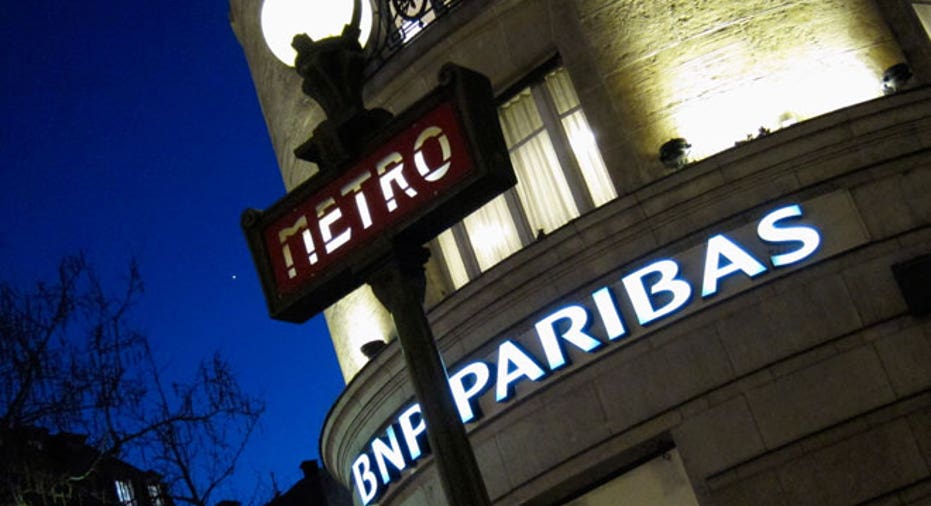BNP hands years of oil trading files to U.S. in $10 billion probe

French bank BNP Paribas, which is facing a potential $10 billion fine for breaking U.S. sanctions, has handed over to U.S. investigators files covering many years of its dealings with leading companies in the oil market.
A dozen former BNP insiders and senior trading executives said it had in recent months handed over a host of documents relating to its oil dealings with Sudan and Iran, including details on trading houses' and oil majors' involvement in the trades.
Before now, all that had been known about the probe was that U.S. authorities were investigating whether BNP evaded sanctions relating to Sudan, Iran and Cuba and if it stripped identifying information from related dollar wire transfers to be cleared by the U.S. financial system.
BNP declined to comment. It has said publicly only that it is in discussions with U.S. authorities about "certain U.S. dollar payments involving countries, persons and entities that could have been subject to economic sanctions".
The sources told Reuters that the probe has so far mostly focused on the bank's dollar financing of oil trade out of Sudan - a much smaller producer than Iran - between 2002 and 2009, long after Washington imposed sanctions against the government in Khartoum in 1997 over human rights violations. It extended the sanctions in 2007.
They said BNP provided the lion's share of trade financing to Chinese companies including Sinopec <600028.SS> and CNPC, which were the main importers of Sudanese crude during the period. The Chinese companies declined to comment.
Sudan's oil production rose from around 200,000 barrels per day (bpd) in 2000 to a peak of almost 500,000 bpd in 2010, according to U.S. Energy Information Administration data.
Although China was and remains the main importer of crude from Sudan, BNP also provided trade finance to major global trading houses such as Trafigura and Vitol, which were also involved in trading Sudanese oil at the time.
The trading houses declined to comment.
Several of the sources said they believed the files did not contain compromising information against the trading houses and oil companies.
It was not clear if BNP provided the materials voluntarily.
The U.S. Department of Justice (DoJ) and the Manhattan District Attorney declined to comment.
"BNP has given all its files to the U.S. authorities. The full Monty," a former BNP Paribas insider said.
"The information that it has provided certainly includes all counterparties," a senior trading source said.
According to people familiar with the matter, U.S. authorities at one point suggested that BNP pay a penalty as high as $16 billion, though more recently they have been discussing $10 billion, which would still almost wipe out BNP's entire 2013 pretax income.
France's finance minister said on Sunday that talks about the fine between the bank and U.S. authorities had progressed towards a "more equitable" level.
The bank also faces the risk of being temporarily blocked from clearing U.S. dollar transactions.
2007 HALT
BNP and other non-U.S.-listed banks continued to finance oil trades in U.S. dollars out of Sudan following the imposition of U.S. sanctions in 1997, in the belief they were not violating those restrictions.
"Few people really believed that the mere fact that you were touching a U.S. dollar when you are not a U.S. bank when you are not doing it out of the U.S. was really breaching U.S. law," a former senior BNP employee involved in the financing said.
BNP financed around 30 percent of oil exports from Sudan, but it halted trade with Sudan in July 2007, a month after the U.S. imposed new sanctions and two months after Nicolas Sarkozy was sworn in as French president with a promise to improve ties with Washington, the former senior BNP source said.
China's national oil companies, which buy up most of the heavy-grade oil produced in Sudan to process in refineries, were enraged by the decision, according to one former executive.
Trading entities were then set up in Hong Kong, Singapore and Switzerland in order to continue the oil trade out of Sudan, several sources said.
It was not clear whether some of those entities were financed by BNP, an issue being investigated by the DoJ, according to the sources.
It was the world's top financier of commodity trading throughout the 1990s and 2000s but has drastically reduced staffing in its Geneva and Paris offices in the past two years as it cut some of its riskier business and analyzed the implications of the ongoing U.S. investigation.
If that history left it exposed in Sudan, its business in Iran, OPEC's second-largest oil producer after Saudi Arabia, could have wider implications, as the scale of its operations and the number of parties involved dwarf those in Sudan.
Iran was the target of a U.S. embargo after the 1979 Islamic revolution, but its oil became subject to an EU embargo only in 2012 as part of Western efforts to persuade Tehran to abandon its nuclear program.



















